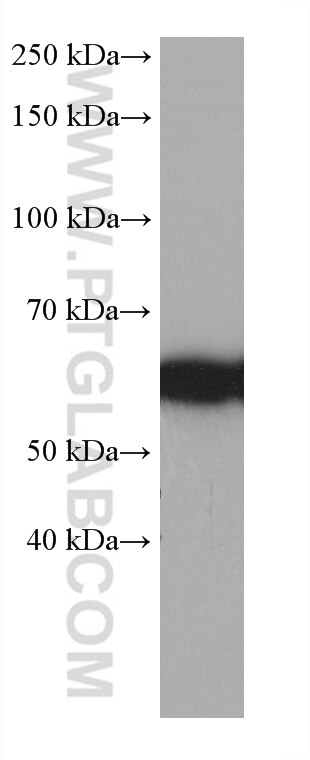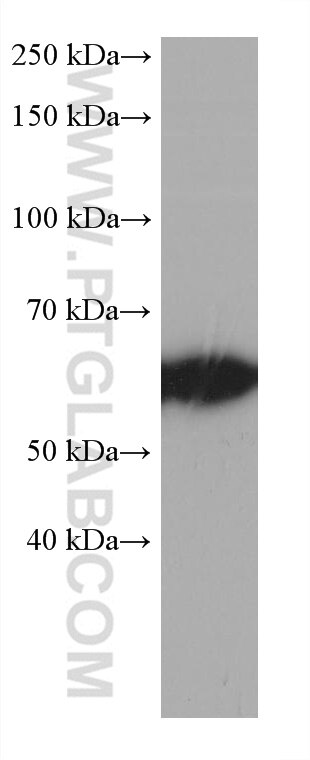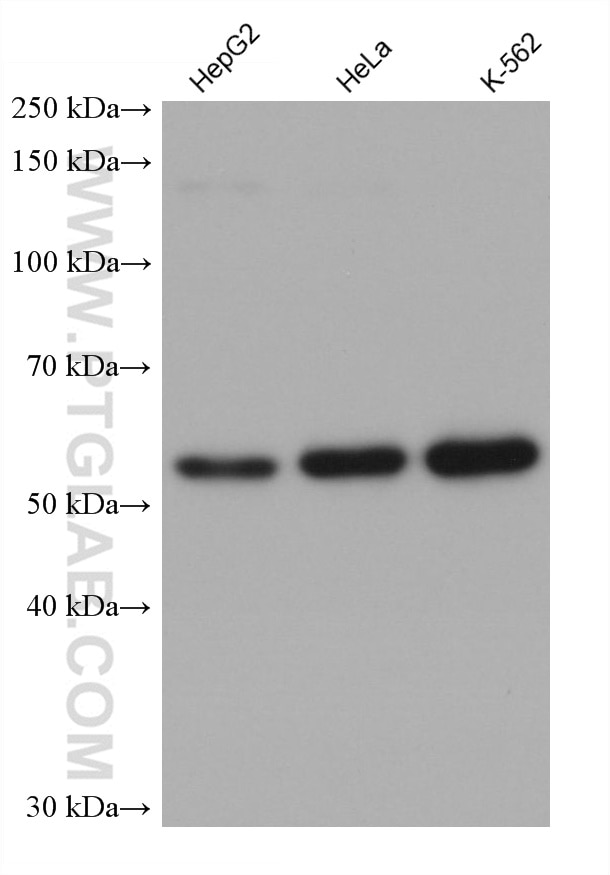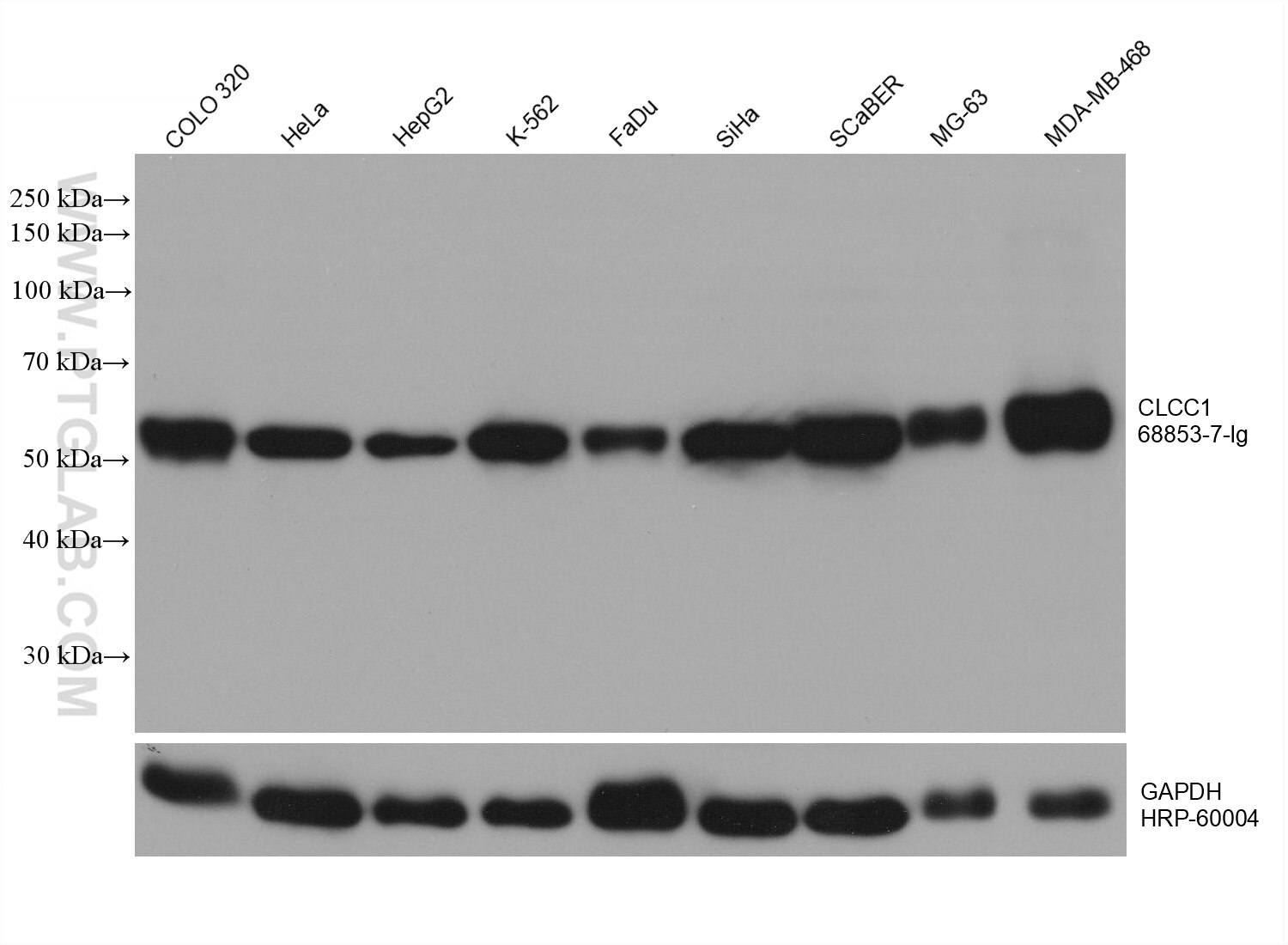Tested Applications
| Positive WB detected in | COLO 320 cells, HepG2 cells, hTERT-RPE1 cells, HeLa cells, K-562 cells, FaDu cells, SiHa cells, SCaBER cells, MG-63 cells, MDA-MB-468 cells |
Recommended dilution
| Application | Dilution |
|---|---|
| Western Blot (WB) | WB : 1:5000-1:50000 |
| It is recommended that this reagent should be titrated in each testing system to obtain optimal results. | |
| Sample-dependent, Check data in validation data gallery. | |
Product Information
68853-7-Ig targets CLCC1 in WB, ELISA applications and shows reactivity with human samples.
| Tested Reactivity | human |
| Host / Isotype | Mouse / IgG1 |
| Class | Monoclonal |
| Type | Antibody |
| Immunogen | CLCC1 fusion protein Ag24682 Predict reactive species |
| Full Name | chloride channel CLIC-like 1 |
| Calculated Molecular Weight | 551 aa, 62 kDa |
| Observed Molecular Weight | 50-60 kDa |
| GenBank Accession Number | BC002939 |
| Gene Symbol | CLCC1 |
| Gene ID (NCBI) | 23155 |
| RRID | AB_3670441 |
| Conjugate | Unconjugated |
| Form | Liquid |
| Purification Method | Protein G purification |
| UNIPROT ID | Q96S66 |
| Storage Buffer | PBS with 0.02% sodium azide and 50% glycerol , pH 7.3 |
| Storage Conditions | Store at -20°C. Stable for one year after shipment. Aliquoting is unnecessary for -20oC storage. 20ul sizes contain 0.1% BSA. |
Background Information
CLCC1, also known as MCLC, is a transmembrane protein that localizes to intracellular compartments, including endoplasmic reticulum (ER), and it functions as a chloride channel (PMID: 11279057). It has been shown that loss of CLCC1 results in ER Stress, misfolded protein accumulation, and neurodegeneration (PMID: 25698737). CLCC1 forms homomultimer in the ER membrane and is a pore-forming component of an anion channel. Studies found that disruption of ER ion homeostasis maintained by CLCC1 is one of the causes of neurodegenerative diseases, such as ALS (amyotrophic lateral sclerosis) (PMID: 37142673).
Protocols
| Product Specific Protocols | |
|---|---|
| WB protocol for CLCC1 antibody 68853-7-Ig | Download protocol |
| Standard Protocols | |
|---|---|
| Click here to view our Standard Protocols |









